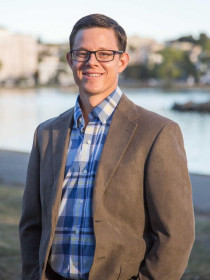Connect with Charlie
About Charlie
Eaton's research investigates the roles of organizations in the interplay between economic elites and disadvantaged social groups. What forms of organization strengthen elite efforts to consolidate power in politics and the economy? What are effective organizational strategies by which non-elites can achieve more equitable distributions of power, wealth, and status?
Financialization, the growing importance of financial markets, financial organizations, and financial ideas, has elevated U.S. financial elites to the pinnacle of power in recent decades. At the same time, the transition to a post-industrial economy has made a college degree an increasingly necessary prerequisite for Americans to attain economic success and security. Eaton's primary current research project therefore examines relationships between financialization and growing inequalities in U.S. higher education. His research has been covered in The New York Times, The Washington Post, TIME, Newsweek, Forbes, The Nation, The Chronicle of Higher Education, and Inside Higher Ed.
Contributions
How Powerful Consumer Advocates Help ObamaCare Succeed in California
In the News
Publications
Illuminates the case of US higher education, we consider financialization as both increasing reliance on financial investment returns and increasing costs from transactions to acquire capital. Discusses the implications of the findings for resource allocation, organizational governance and stratification among colleges and households.
